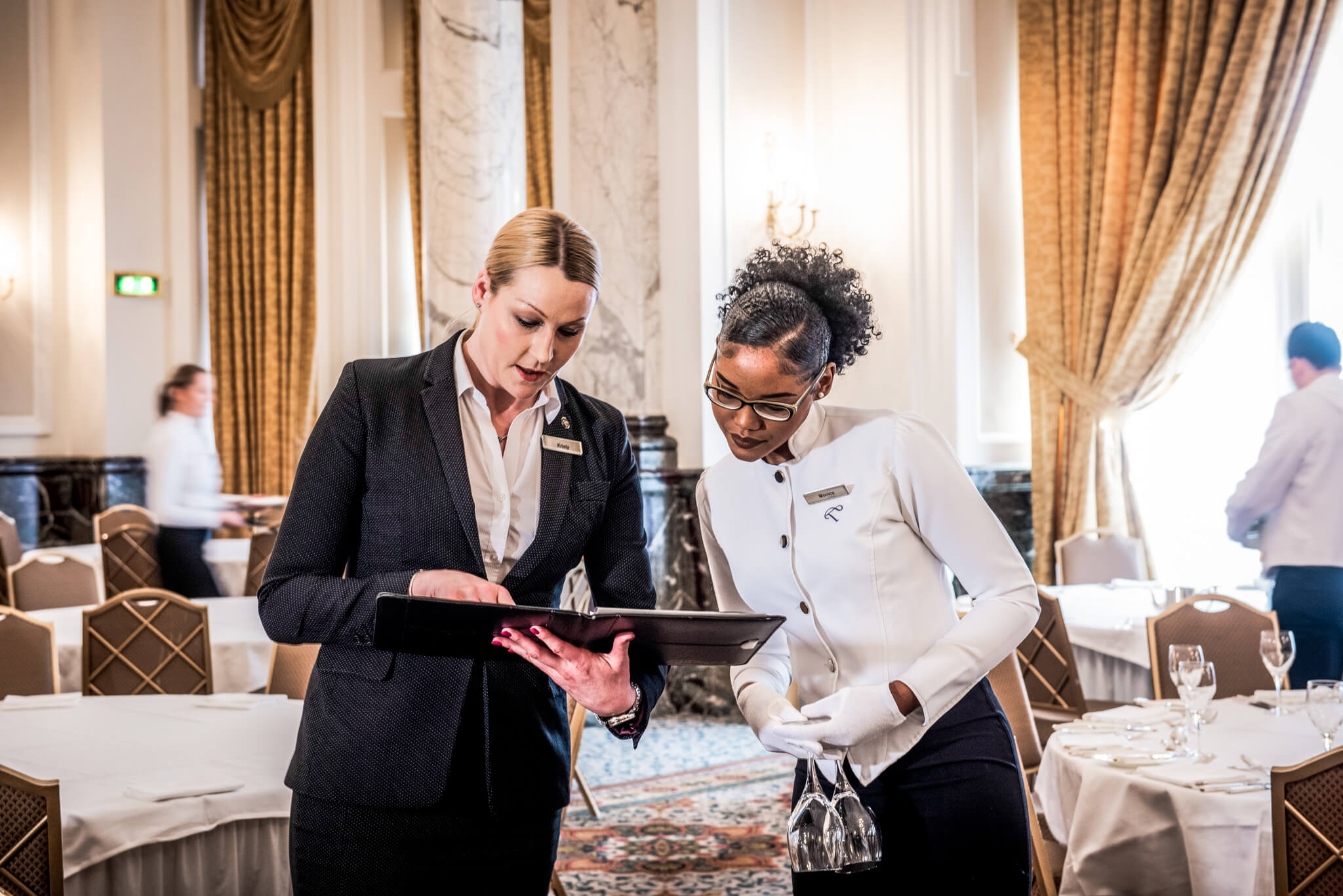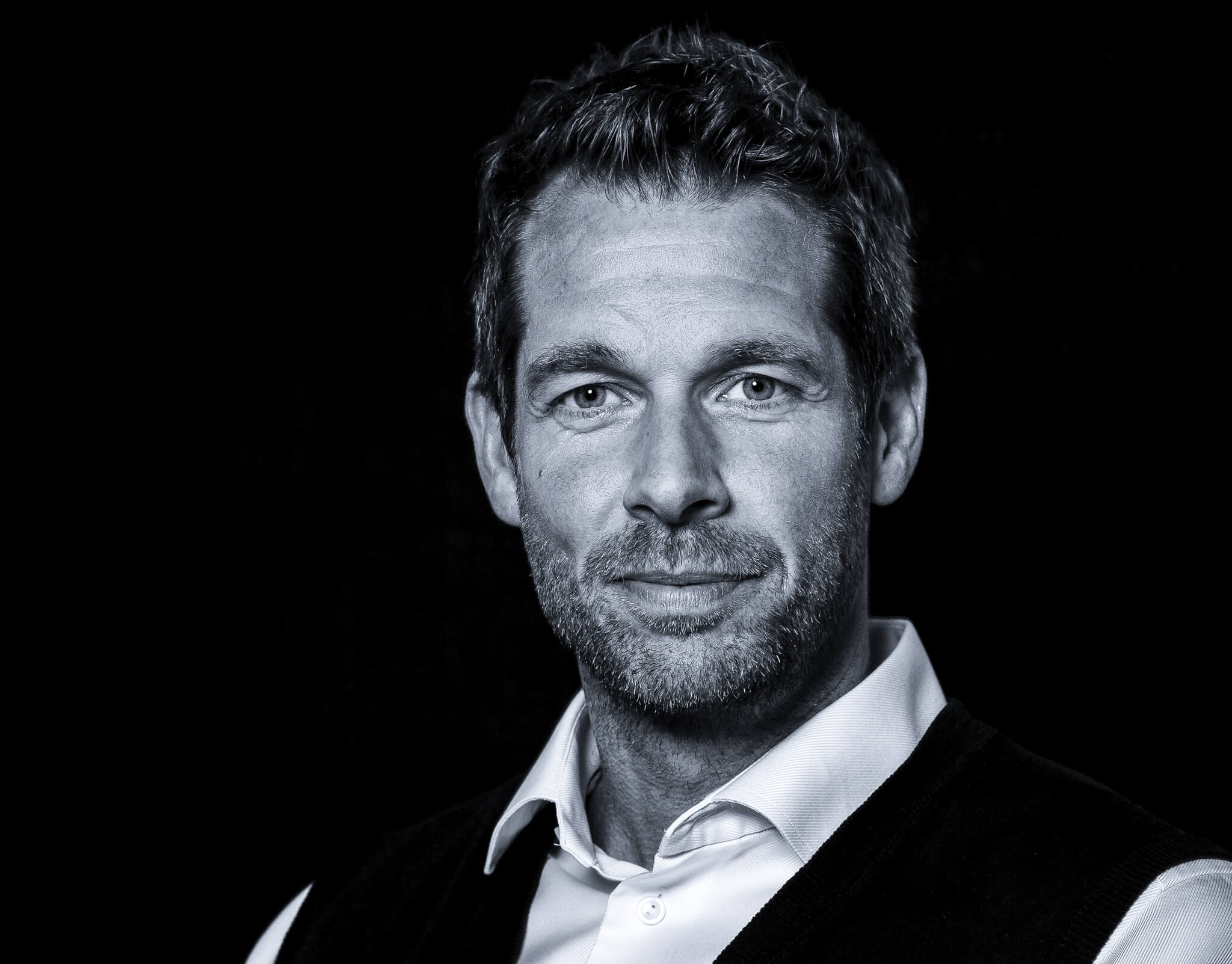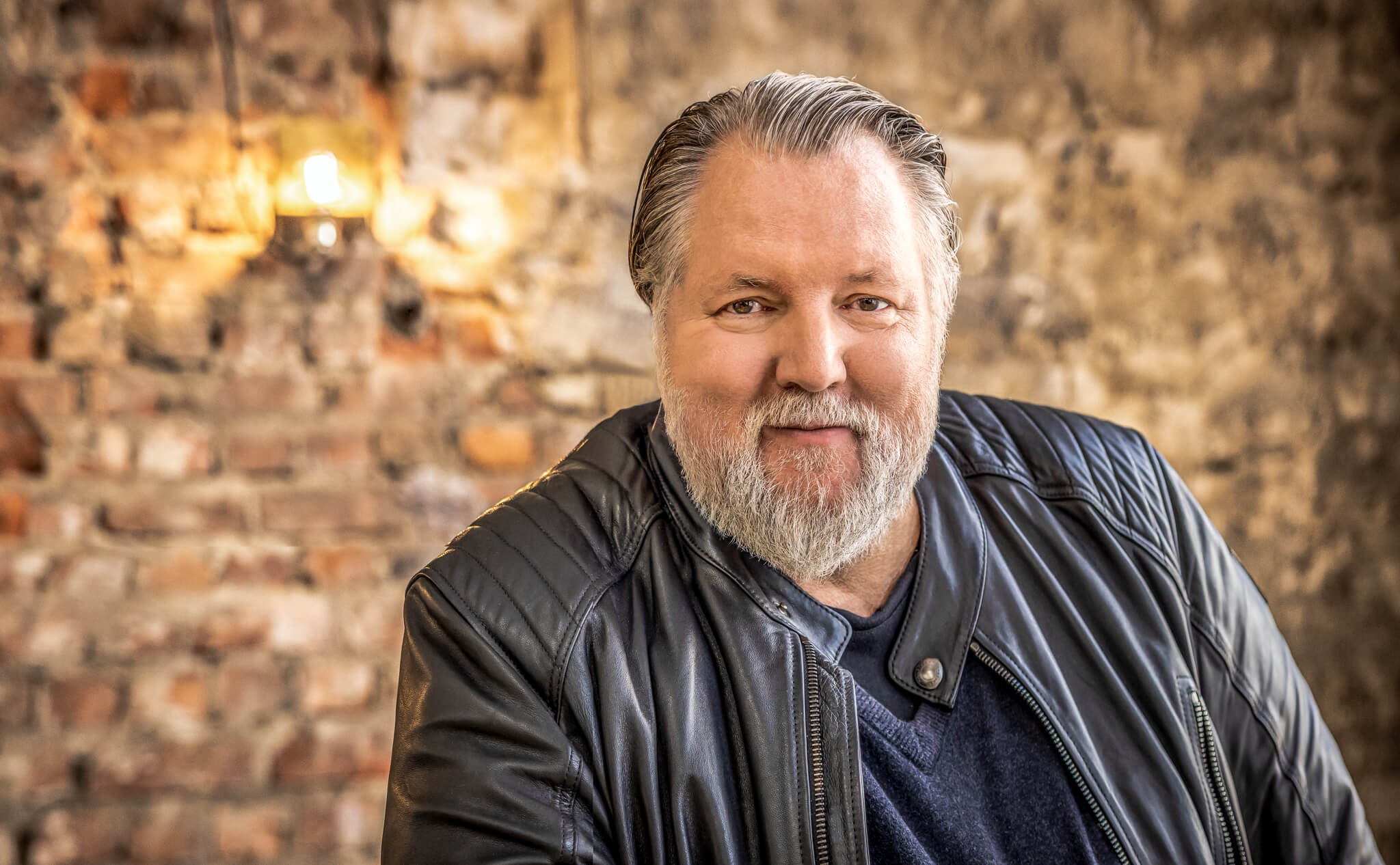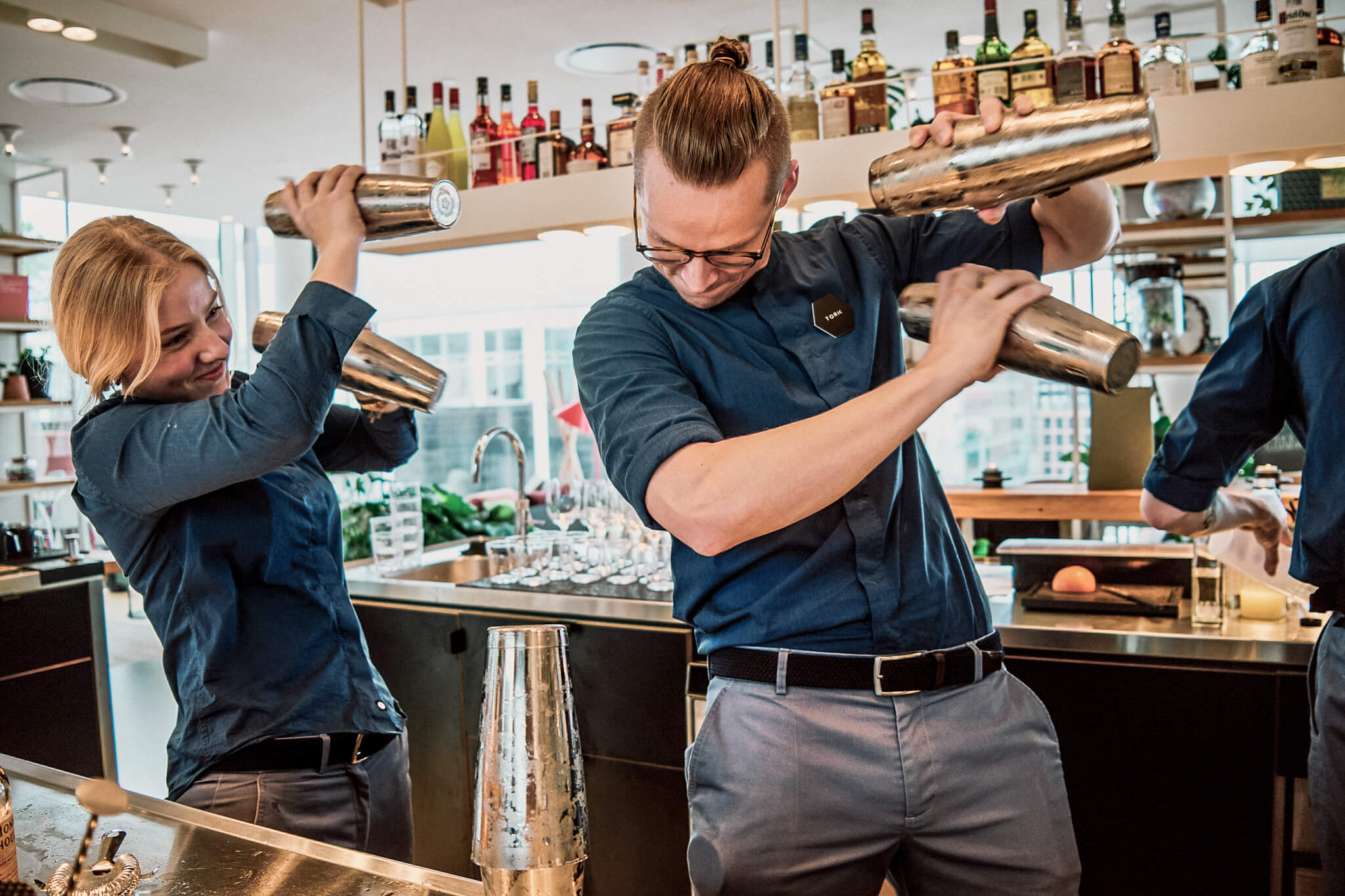Respect, integrity, continuous improvement and fun. This is how The Landmark London defines its corporate values. The 5-star hotel is not alone: Values like these can be found on numerous “About us” pages from companies in our industry. They specify how work processes should be carried out and how people should deal with each other, both internally and in cooperation with external companies. Values describe who you are and what you stand for. They should give employees guidance, motivate them and give a sense of purpose. Or so goes the theory.

Responsibility & appreciation – The Landmark London is one of the best employers.
Image: The Landmark London
In practice, however, they are rarely implemented and applied as consistently as they are at The Landmark. In 2020, the hotel was voted number 4 by the Sunday Times of the “100 Best Companies to work for in UK”. One of the reasons for this is that the employees share the company values. In a survey conducted prior to the ranking, 89 percent of them said they love their job. More than 20 percent of new hires at this point were referred by current employees. In the technical jargon, there is a term for this: “purpose driven organization”. In other words, a meaningful corporate culture.
FULFILLING WORK
What exactly does that mean? In a meaningful corporate culture, the focus is on people. Employees are not regarded as a business cost factor, but rather as those whose work determines the success of the hotel or restaurant. A purpose driven organization therefore does everything it can to promote the individual strengths and potential of its employees.
In 2019, The Landmark, for example, invested 60,000 pounds in HR development alone – starting with English and Microsoft Excel courses and moving on to job shadowing and comprehensive management training.
Sieh dir diesen Beitrag auf Instagram an
Particularly these days, when the hospitality industry is in a state of upheaval, many people are asking themselves whether their work is meaningful. For this to unfold, you need freedom, in other words, the opportunity to develop personally and to stand up for what is important to you rather than being forced into a role you don’t want to be in. To achieve this, traditional structures usually have to be broken down and employees have to be given responsibility and shown appreciation.
“If you can’t fully be yourself, then you won’t feel comfortable at your job. Then you will not identify with the values,” says Anna Haumer, HR coordinator at the purpose-driven office hybrid Zoku in Vienna. Developed by the two founders Hans Meyer and Marc Jongerius and also applied at Zoku locations in Copenhagen, Amsterdam as well as in Paris as of the end of the year, the concept is based on the theory and values of Frederic Laloux and the three pillars of self-leadership, holism and evolutionary meaning.
Sieh dir diesen Beitrag auf Instagram an
Haumer says, “Self-management means that we work in teams that operate completely autonomously. This is implemented by the corporate value “Be a bus driver,” whereby employees are given the freedom to change things themselves and take responsibility for the entire company.
Holistic means that everyone can be themselves. It starts with talking openly about private matters and saying when you’re not doing well. You also shouldn’t have to hide your sexual orientation. This requires an environment that is extremely safe.
Evolutionary meaning implies the company is constantly evolving and the employees are contributing to it. The focus is also on building a cross-company network, which means other companies are not seen as competition.”
There are no conventional positions in the operational area at Zoku. Instead, there are what we call sidekicks, which alternate between front office, bar and service staff. For the employees, this keeps the job exciting, and they have much more direct contact with guests. For the hotel, this in turn means everyone can do everything. If one person is absent, another person does the work.
Sieh dir diesen Beitrag auf Instagram an
What’s more, guests consider the employees hosts again, not just workers. At this point, co-founder Hans Meyer likes to quote a guest who once said, “Zoku is based on love and people.”
“Flexible roles are important to promote meaning at work. With rituals like Celebrate Success, where every success, no matter how small, is shared and celebrated with the team, employees feel included in the business and part of the bigger picture,” Haumer said.
SHOW APPRECIATION
Self-organized teams and partially doing away with positions can also be found at Upstalsboom. This group of companies, which operates around 70 hotels and holiday resorts on the North and Baltic Sea, also relies on a value-based corporate culture. The change was triggered by an employee survey carried out in 2010, which was critical of the company as well as of Managing Director Bodo Janssen.

Image: Upstalsbloom
Afterward, Janssen began to question his leadership style and work on himself. For more than a year and a half, he regularly went to a monastery to gain new perspectives and also explored the findings of positive psychology and neurobiology. As a result, employees satisfaction increased to 80 percent and the average sick day rate fell from eight to three percent. Company sales doubled within three years and the recommendation rate for guests went up to 98 percent. Since then, guiding principles such as “added value through appreciation” or “unleashing potential instead of using resources” have shaped day-to-day cooperation.
These principles are largely in line with what Hiamo co-founder Marco Nußbaum means by purpose driven hospitality. His newly established company stands for personal responsibility, initiative, horizontal structures and appreciation. However, Nußbaum goes one step further in terms of appreciation: Every member of the team is involved in the success of the company. In concrete terms, this means that in addition to the above-standard pay and bonus system, the company also has a shareholding scheme.

Image: Hiamo
However, the biggest advantage of sources of meaning at work is that they can positively influence the skills shortage. This is because the work is suddenly fulfilling and valuable. “Working conditions that make the difference,” that’s what they call it in the Best Wellness Alpine Hotels. Self-realization goes hand in hand with a balanced “alpine work balance,” which is supported by diverse benefits. All in all, it’s about creating moments of happiness every day; for the guests, but also for the employees.
Create meaning: How to start a cultural transformation and keep skilled staff
- Get to know your employees:
This is the only way to know what they need. At Zoku, we all work on the same floor. Called the “social space,” it is on the top floor of the building and includes the co-working area, restaurant and bar for guests. This means that every one of us is in the middle of the action.
- Rethink classic roles:
Give your employees responsibility and show them appreciation. At Zoku, the atmosphere at work and team bonding are paramount.
- Define values:
This makes it easier to find the right people and to grow together. Purpose driven organization is not for everyone. Some people need more traditional structures.
- Find someone who has experience with meaningful corporate culture.
And put him in charge of HR Development. A change in values takes time and a leader who is thinking about where the journey should go. - Make sure things can go wrong:
It would therefore be a mistake to remain in tradtional structures. There is a solution for everything. A cultural transformation is a process of change in which we learn something new every day.
















